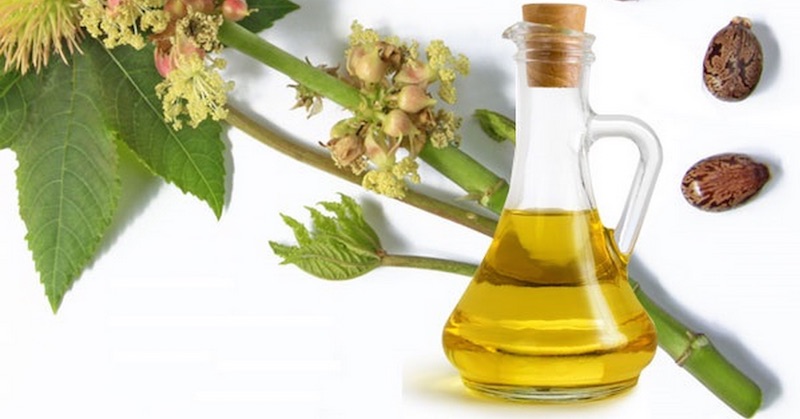What You Should Know Before Using Castor Oil
Last updated on
Castor oil is widely known as an effective natural remedy due to its antibacterial, antiviral, and antifungal properties. The oil is mostly made of fatty acids, 90 percent of which is ricinoleic acid, believed to be responsible for castor oil’s many health benefits.
But in spite of castor oil’s many positive attributes, natural health expert Dr. Joseph Mercola advises being cautious when using it, as there are reports of side effects among some users. If you wish to use this oil, Dr. Mercola shares certain considerations that need to be noted.
The Many Uses and Benefits of Castor Oil
Castor oil is obtained from the castor seed Ricinus communis, which has an unusual chemical structure. Castor seeds contain a toxin called ricin, which is fatal and often used in chemical warfare. Although the presence of ricin makes castor seeds dangerous, castor oil does not pose any threat to humans because the toxin is not present in the oil.
Castor oil was originally used for industrial purposes, including as an aircraft lubricant during World War I. Castor oil does not freeze because of its consistent viscosity, making it ideal for lubricating equipment in cold climates.
Castor oil is also used as a food additive and flavoring agent, mold inhibitor, skin product and cosmetic ingredient, and in manufacturing plastics, rubbers, synthetic resins, fibers, paints, and similar products.
In modern medicine, the reported therapeutic uses of castor oil have been categorized into:
- Remedies for gastrointestinal problems
- Antimicrobial agent
- Labor stimulant
- Analgesic and anti-inflammatory
- Immune system and lymphatic stimulant
When applied topically, castor oil is effective against skin conditions like keratosis, dermatosis, wounds, acne, and warts, along with sebaceous cysts, itching, and hair loss. With ricinoleic acid, castor oil enhances the absorption of other agents across your skin.
Apart from helping treat skin conditions, castor oil is said to aid in the treatment of the following:
- Multiple sclerosis
- Arthritis
- Migraine and other types of headaches
- Intestinal problems like appendicitis and colitis
- Cerebral palsy
- Gynecological problems
- Parkinson’s disease
- Eye irritations
- AIDS
- Cancer
Direct application of castor oil on skin can also promote your immune function by increasing your lymphocyte count. Lymphocytes are disease-fighting cells stored in your lymphatic tissues (thymus gland, spleen, and lymph nodes). One benefit of this is the more efficient removal of toxins from your tissues, which promotes faster healing.
Potential Side Effects of Castor Oil
The use of castor oil is not without any adverse effects, which are usually skin reactions and gastrointestinal irritations.
Dr. Mercola explains that when castor oil reaches your small intestines, it is broken down into ricinoleic acid, which can irritate your intestinal lining. In effect, constipation is reversed. However, some people experience digestive discomfort, diarrhea, and other related side effects.
Although castor oil is used to help induce labor in pregnant women, cases of nausea among these women have been detected.
As with other essential oils and natural agents, you should also take note of its source. Most stocks of castor oil sold in stores are extracted from castor seeds that have been heavily sprayed with pesticides, solvent-extracted, deodorized, or chemically processed. This damages the quality of the oil and even raises your risk of being contaminated with agricultural toxins.
Dr. Mercola emphasizes that the benefits of castor oil are more anecdotal than scientific. It is wise to proceed carefully so that you can minimize your risk of any side effects. If you do choose to use this oil, below are some recommendations on how to do so properly.
How to Maximize the Benefits of Castor Oil
You can directly rub castor oil it on your skin. Another is to soak a Band-Aid in castor oil and apply it to the affected area. The oil can also be used as a massage oil, but reports show that this is only effective when applied along your spinal column, massaged along your lymphatic drainage pathways.
However, Dr. Mercola states that using castor oil packs is a more economical and more efficient way to infuse the benefits of ricinoleic acid and other healing components of castor oil directly to your tissues. Before use, he recommends having a patch test done to determine if you’re allergic to the oil or not.
Some of the links I post on this site are affiliate links. If you go through them to make a purchase, I will earn a small commission (at no additional cost to you). However, note that I’m recommending these products because of their quality and that I have good experience using them, not because of the commission to be made.


































 JOIN OVER
JOIN OVER
Comments